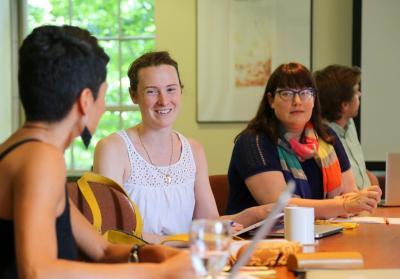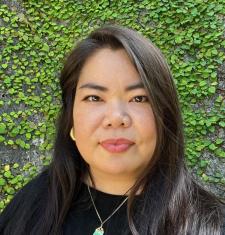Digital Humanities Summer Fellowships

The Simpson Center offers annual summer fellowships for faculty and graduate students to pursue research projects that use digital technologies in innovative and intensive ways and/or explore the historical, social, aesthetic, and cross-cultural implications of digital cultures. The program has three primary goals:
- To animate knowledge—using rich media, dynamic databases, and visualization tools
- To circulate knowledge—among diverse publics
- To understand digital culture—historically, theoretically, aesthetically, and generatively
The Simpson Center gratefully acknowledges the support of a National Endowment for the Humanities Challenge Grant and the Andrew W. Mellon Foundation as well as many donors to the endowment which is underwriting these fellowships.
2025 - 2026 Digital Humanities Summer Fellows








2019 - 2020 Digital Humanities Summer Fellow

Rachel Yim Schlotfeldt (she/her/hers)
Speculative Race and Technology in Narrative Hypertext
My project is a hypertextual web app based on Apple’s “Supplier Responsibility” booklet that highlights how the constructedness of these kinds of documents and the ways in which ethical consumption and sourcing get narrated, contribute to the disconnect between material conditions and material goods. I am arguing for the ways in which this cultural erasure, facilitated by technology and consumerism, digitally empowers a new form of imperialism and violence that directly depends on invisible Asian labor.